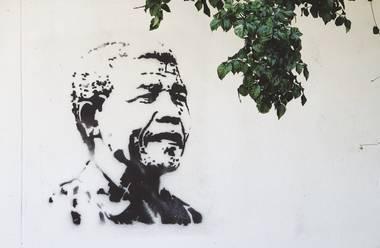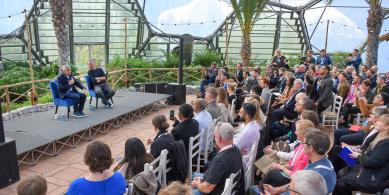As I seek valiantly to recover from a recent skiing accident (pause for waves of indifference), I am reminded of just how much the benefits of physical exercise contribute to my life.
I have never been touched by faith in a deity but keeping fit, striving for a healthy body, is bizarrely the closest I have come to a committed behaviour regime along the lines of quasi-religious observance.
And it works, both as a source of energy and an antidote to the daily cut and thrust.
I am grateful for this in part because there is unnervingly little comfort to be gained from a quick scan around the world. Actress, lecturer and author Ruby Wax, now with a master’s degree from Oxford University in Mindfulness-based Cognitive Therapy, sums it up beautifully: “You open a newspaper, everyone’s dead”.
In the developed world, we are pedalling hard to navigate what I refer to as the ‘overwhelmed economy’. Undoubtedly, overall living standards have never been higher and we must be careful not to bleat like over-indulged softies. But as our society becomes increasingly afflicted with rampaging levels of mental illness, from everyday stress to crippling depression, we are obliged to recognise that all is not well with our 24/7, always-on environment.

To quote Ruby Wax again:
“We are not equipped for this century, it’s too hard, too fast, and too full of fear; we just don’t have the bandwidth.”
The contributing factors to this state of mind are information overload, multiplicity of choice and our over-stimulated competitive instincts (‘What if I make the wrong choice?!’), forming a toxic combination whereby we are constantly on a high vigilance setting. Finding repose in such a frenetic world has become a flickering fantasy.
So what’s to be done? As a consultant in relationship management, I was particularly taken with Ruby’s idea that we contribute to the goal of saner living by reminding ourselves that we are human. Refocusing on the simplicity of a universal truth always works for me.
As she asserts in one of her blogs: “To be human is not in fashion these days. Successful people like to think of themselves as an extension of their digital hardware…Nothing functions unless our fingers are clicking away, giving our Facebook or Twitter followers a snippet of our lives…We made our machines faster and faster…so that we’d have spare time. Now we spend our lives keeping up with the machines. We wouldn’t know what ‘spare’ was if it hit us in the head…

And the less spare time you have, the higher your social rating. Very few people will answer the question, ‘Are you busy?’ with ‘No’”.
On the other hand being human permits us to take time out, to press the ‘off’ button and, importantly, to reveal the flaws, common to us all, which generate the empathy which binds us together and creates a sense of community and shared purpose.
Which brings us, of course, to Africa! It would be perverse if the cradle of civilisation did not have something meaningful to add to a discussion on what constitutes being human. And the concept which captures this beautifully is Ubuntu. A Nguni Bantu term, literally meaning ‘human-ness’, the core of Ubuntu philosophy is the affirmation of an individual’s humanity through the recognition of that of others. It is often translated as ‘humanity towards others’ and espouses the belief in a universal bond that connects us all. ‘A person is a person through other people’ is another expression of Ubuntu.
In the 1990s Ubuntu was adopted in South Africa as a guiding ideal for the transition from apartheid to majority rule.
In his book, ‘No Future Without Forgiveness’, cleric and theologian Desmond Tutu described a person with Ubuntu as “open and available to others…(with) a proper self-assurance that comes from knowing that he or she belongs in a greater whole…”. This important indication that Ubuntu cannot be dismissed as a mantra for selfless but side-lined idealists has also been confirmed by Nelson Mandela. Specifically, and reflecting one of society’s key drivers, individuals can enrich themselves as long as they enable the community around them to be improved.
If the overwhelmed economy is here to stay, then we need to tame it before it diminishes us. However busy our digitally-enabled lives become, personal and professional success is based on robust, mutually beneficial, respectful relationships.
Genuine rapport and trust trump the more superficial and ephemeral indicators of online connectedness.
As Ruby Wax and the advocates of Ubuntu understand, first and foremost, we are human. Let’s rejoice in that.
By Paul Tredwell, Director, Bigfoot Consulting Ltd
Newsletter
Enjoy this? Get more.
Our monthly newsletter, The Edit, curates the very best of our latest content including articles, podcasts, video.
Become a member
Not a member yet?
Now it's time for you and your team to get involved. Get access to world-class events, exclusive publications, professional development, partner discounts and the chance to grow your network.




